I want to talk a bit about how I study Chinese. First, of all, I listen to Chinese music.
There are two kinds of listening: passive listening and active listening. Passive listening involves listening to the music but not thinking about its meaning. Active listening means listening for comprehension. Both kinds of listening is intructive. Passive listening enables you to get exposed to the language and it helps your pronunciation: you might find that the song you listened to all day you can now sing back even though you didn't understand a word. Active listening is more involved and it requires you to try to make sense of what you are listening to.
I have learned a lot of Chinese vocabulary by listening to Chinese songs, especially words meaning "heartbreak" (傷心 or 心碎), "loneliness" (寂寞), "tears" (流淚), "doubt" (懷疑), "ambiguity" (曖昧), "strange" (可怪), "reason" (理由), "impatient" (不耐煩), "freedom" (自由), "choice" (選擇), "courage" (勇氣 or 勇敢), "responsible" (負責), "believe" (相信), "change" (改變), "love" (愛情, 戀愛 or 好喜歡), "happiness" (幸福 or 快樂), "smile" (微笑), "passionate" (熱情), "rose" (玫瑰), "hug" (擁抱), "forever" (永遠), "strong" (堅強), "ideal" (理想), "lover" (情人 or 戀人), "angel" (天使), "taste" (味道 or 滋味), "reckless" (不顧一切), “confession”(自白 or 承認), "mood" (心情) and "pretence" (假裝). (In fact, Cyndi Wang has songs called 熱愛and 彩虹的微笑, Jolin Tsai has songs called 檸檬草的味道, 看我72變 and 假裝, Rainie Yang has songs called 曖昧 and 理想情人, Vivian Hsu has songs called 好眼淚壞眼淚 and 假扮的天使, Elva Hsiao has songs called 表白 and 幸福的地圖, Coco Lee has songs called 好心情 and 爱你是我的自由, Karen Mok has songs called 我不耐煩, 寂寞的戀人啊 and 堅強的理由, and A-Mit has songs called 不顧一切, 我要快樂 and 永遠的快樂 and I listened to these songs constantly over the summer so it wasn't hard to learn these words.) You can tell that I have been listening to a lot of love songs, can't you? I can also learn how to write the words by watching the karaoke versions.
A combination of passive and active listening can enable you to both sing back a song and understand what it means and that means learning a lot of new vocabulary and impressing people with your Chinese, which is seriously cool.
I wish I could say that I picked up a lot of Chinese from meetings but the truth is I understand very little of what is said in meetings: academic Chinese is much harder than regular Chinese and, besides, people at meetings are usually talking very quickly so they can get the meetings over with (which is probably why they don't want to use any English). I do, however, engage in a lot of conversations with people in Chinese (at restaurants, in stores and in taxi cabs). I also sometimes translate what I say in English to Chinese for the benefit of a student who obviously didn't understand me. Sometimes I will even hear students talking in Chinese in class (which they are not supposed to do) and I will jump right into their conversation and absolutely stun them. (I can also do that, to a limited extent, in Korean, Japanese or Cebuano -my wife's language- provided I am not expected to speak the languages themselves and have enough context to have been able to simply guess what was being said.)
I also wish I could say that my writing in Chinese was as good as my speaking but, frankly, Chinese writing is difficult and involves a lot of memorisation. This is, of course, again, where karaoke works wonders, because I can see words in Chinese and, if I bother to look the words up in my Chinese-English dictionary, know what they mean and the constant exposure means I have a picture of the word in my mind that I can just copy if I need to write the word. It also helps that I see Chinese words around town on signs. I've downloaded a lot of Chinese songs and burned them to disk: at first it was easier for me to write pinyin on the labels but eventually I started writing Chinese characters. It's becoming more natural for me.
Finally, I've read a lot of Chinese, mostly storybooks (that I read to my sons, Michael and Ian) but also magazines (FHM Taiwan) and newspaper articles (from the Shuang Daily). I also get a lot of practical reading experience surfing the net, say for example when I download Chinese videos from youtube. Everything I read has a lot of pictures because I need the context: it is very hard to understand written text if there's even one word you don't understand, especially when Chinese grammar is so different from English grammar.
Basically then I find myself working on all four of my basic skills, reading, listening, speaking and even writing. I really should work more on my writing because it is very useful, say for example when somebody doesn't understand what I say in Chinese and I need to write it down for them. Being able to write full length essays in Chinese is a long, long way off for me though.
Martin
Wednesday, 14 October 2009
Subscribe to:
Post Comments (Atom)











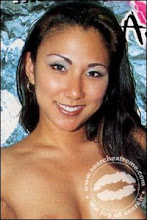




















































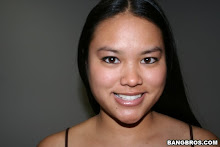






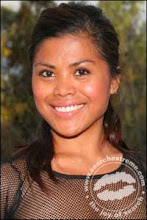






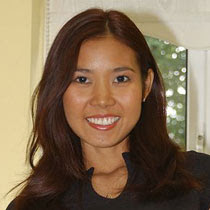

















































































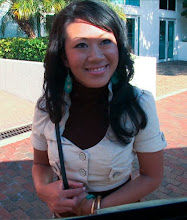







































Wonderful post, Martin. I find reading newspaper is the most effective way for me to learn English, probably because of my interest in politics.
ReplyDelete